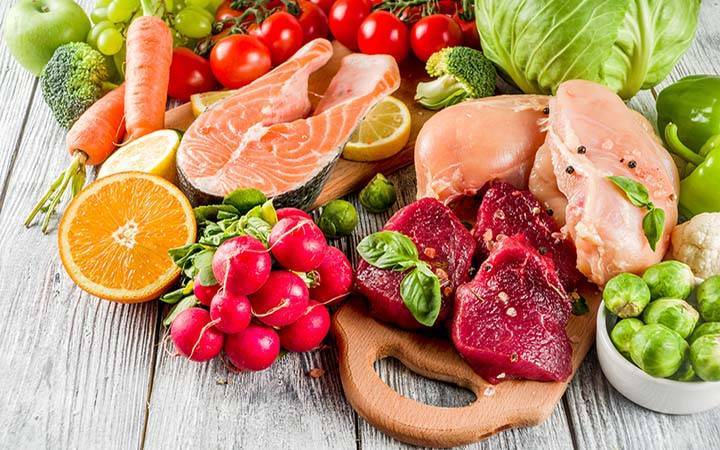Healthy Fuel for a Healthy Body
The food we put into our mouth builds our body and provides the energy we need to function in life. If we put unhealthy foods or foods that are not in alignment with our body’s unique needs, our health will be compromised. Understanding and making healthy dietary choices an important part of rebuilding our health.
Baby steps for a smooth transition
We get comfortable with what we eat. The known is safe. The unknown can be scary. We are all subject to following known habits as they are encoded in our brains. To do something new or different requires the brain to create new neural pathways. That takes time and consistency with the desired change. Taking baby steps allows for the changes to take place naturally and harmoniously.
Feed the body, feed the mind
In the book “The Yoga of Eating” by Charles Eisenstein, he says that any change we make on the physical level will lead to a change on the mental/psychological level. In my yogic training, we were taught that our body is a gross mind, and the mind is a subtle body. That means that the body and mind are mirrors of each other. A change in one begins a change in the other. Making changes, therefor, requires commitment and consistency.
My diet today is very simple and wholesome. The way my diet is now didn’t happen overnight. I have been working on my diet for many years and it has gone through many evolutions. It still changes and evolves as I evolve. My body tells me what to eat, not some external diet theory.
Start with some healthy guidlines
In the beginning, we do need to follow certain guidelines about diet. We need guidelines that will bring our bodies back into a state of inner balance and health. As your balance and health improves, your body will tell you what is working and what is not. Then you can switch to following you body on what to eat and not.
10 Helpful Hints
- Increase the amount of whole foods in your diet.
Whole foods grown in healthy soil provide the essential nutrients that your body needs. Whole food are also foods that have been minimally processed. Processing foods strips the nutrients from foods and undermines the health benefits of the food.
- Start your day with healthy balanced breakfast.
Breakfast is the most important meal of the day. It set the tone for the rest of the day. When you wake up in the morning, you have been fasting for several hours. The body needs nourishment to start your day. When you skip breakfast, your blood sugar will drop, your body won’t have the needed energy or nutrients provided by the food for energy or building and repair. The body is constantly building new tissues, repairing damaged tissues and performing other functions which need nutrients to function properly.
- Eat three balanced meals each day.
Skipping meals puts the body in a state of stress. The body needs a consistent flow of energy and nutrients to function optimally. Without those nutrients a downward spiral of functionality occurs. Also, the stress response is activated, the body will secrete adrenaline and you will remain in a flight or fight mentality which further inhibits proper functioning of the body.
- Eat a balance of protein, carb and fat at each meal.
Our bodies need a balance of protein, carbohydrate and fat to function optimally. Without all three nutrients in each meal or snack, the body doesn’t have the balance of nutrients it needs. The right balance of protein, carb and fat is unique to each individual and can be determined by a metabolic typing assessment.
- Drink spring or filtered water.
Water is essential for the body. Although we look solid, more than half of the human body is actually liquid – a briny fluid, much like sea water. This fluid keeps us in good working order, cushioning and hydrating our cells, tissues and organs, transporting nutrients and eliminating waste from the body.
- Choose healthy fats
Healthy fats support important functions in the body. They provide energy, absorb vitamins, maintain proper body temperature, and protect your body. In addition, fats are part of the essential cellular membranes in the body and the brain, are responsible for making hormones, and keep the hair and skin healthy.
- Eat a large variety of vegetables.
Each vegetable provides specific nutrients and energy. By eating a large variety of vegetables, you will receive more of the nutrients that your body needs to get and stay healthy. One way to increase the variety of vegetables is to include lot of different colors in your meals. That makes the meals more attractive and appealing and provides a broader variety of nutrients.
- Eat in alignment with your bio-individuality.
Our bodies are each unique. Your dietary needs are unique. One man’s food is another man’s poison. Some people do well on a high carb, low protein diet. Others need a high protein and fat diet with low carbs. With a metabolic typing assessment, you can have a good starting place to know what it feels like to eat a diet compatible with your bio-individuality. Once you are grounded in that, then you can call upon your body to tell you how and what to eat.
- Chew your food.
Digestion begins in the mouth. As you chew your food, your saliva mixes with the food and begins the digestive process. Chewing also informs the body of what foods you are eating, and your digestive system prepares for that food to come through. Without chewing, the necessary enzymes are missing, and the digestive system lacks the information it needs to fully digest the food. Also chewing aids to the body feeling satiated and therefor reduces the likelihood of over eating.
- Eat with awareness and gratitude.
Awareness and gratitude relax the body and allow the digestive system to be fully operational. I you eat on the run or with out appreciation for your food, the sympathetic nervous system over rides the digestive process and lessens the effectiveness of digestion and absorption of nutrients. Gratitude in itself is healing and nourishing to the body and soul which reduces the tendency of eating to get an emotional need met rather than eating to fuel the body.
This Weeks Introspection
Take some time this week, to reflect on your diet. What positive changes have you made to your diet? How do you feel when you eat healthier foods? What might be a next baby step that you can make to take you diet to the next level?
Until next week, may your food fuel your health and may your health guide your eating choices.
Bindu


